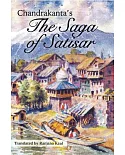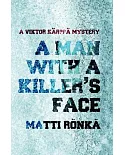In this critical study Bernard Bergonzi makes a close examination of the language and structure of Greene’s novels, and traces the obsessive motifs that recur throughout his work. Most earlier
criticism was written while Greene was still working, and was to some extent provisional, as the final shape of his oeuvre was not yet apparent. In this book Bergonzi is able to take a view of
Greene’s whole career and argues that the earlier work - combining melodrama, realism, and poetry - was Greene’s best, with Brighton Rock, a moral fable that draws on crime fiction and Jacobean
tragedy, as his masterpiece. The novels published after the 1950s were very professional examples of skilful story-telling but represented a decline from this high level of achievement.
Bergonzi also challenges assumptions about the nature of Greene’s debt to cinema, and attempts to clarify the complexities and contradictions of his religious ideas. Accessible and stimulating,
this timely study will be of interest to all those who enjoy Greene’s novels.





















